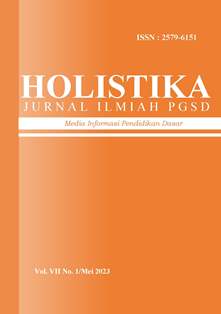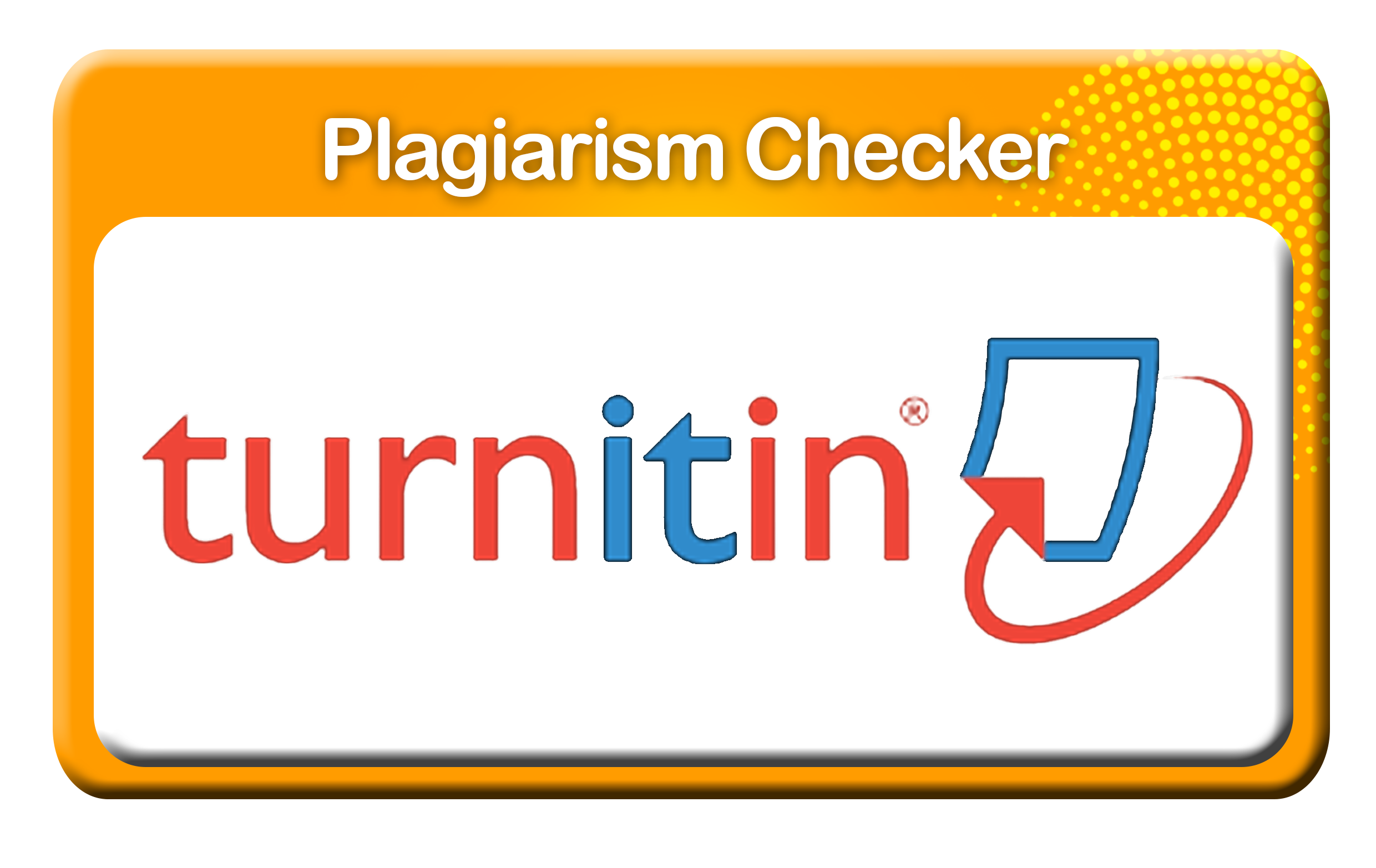STRATEGI PEMBELAJARAN ORANG TUA DALAM MENGEMBANGAN KREATIVITAS ANAK SELAMA LIBURAN SEKOLAH PADA MASA COVID 19
DOI:
https://doi.org/10.24853/holistika.7.1.67-72Abstract
The purpose of this study was to find out what learning strategies were used by parents in developing children's creativity at home during school holidays during the Covid 19 period. The current condition, namely the Covid-19 pandemic, parents play a very central role, accompanying their sons and daughters studying at home. The role of parents during a pandemic can cause various things that can be positive or negative. What are the parents' strategies for discovering new things so that children can play and learn and be creative at home in a pleasant atmosphere, so that children can refrain from playing outside the home without parental assistance to prevent the spread of Covid-19. This study uses a qualitative method with a qualitative descriptive approach. Retrieval of data with observation techniques, interviews and documentation. This research was conducted in June 2022 during school holidays. With three elementary school-aged children as research subjects. From the results of the study it can be seen that parents must have good learning strategies so that children during school holidays continue to gain other knowledge and become creative children.References
Alwasilah, A. C. (2002). Pokoknya kualitatif : dasar-dasar merancang dan melakukan penelitian kualitatif. Pustaka Jaya.
Creswell, J. W. (2014). The Selection of a Research Approach. In Research Design. https://doi.org/45593:01
Depdiknas. (2004). Undang-Undang Republik Indonesia Nomor 20 Tahun 2003 Tentang Sistem Pendidikan Nasional.
Hatimah, Ihat. (2016) "Keterlibatan Keluarga Dalam Kegiatan Di Sekolah Dalam Perspektif Kemitraan", Pedagogia, Jurnal Ilmu Pendidikan, Vol. 14, No. 2.
Hamalik, Oemar. (2002). Perencanaan Pengajaran Berdasarkan Pendekatan Sistem. Jakarta: Bumi Aksara.
Iru, La dan Arihi, La Ode Safiun, (2012) Pendekatan, Metode, Strategi dan Model-Model Pembelajaran Yogyakarta: Multi Presindo.
Lopita, Kiki (2021). Peran Orang Tua Dalam Mengembangkan Kreativitas Anak Usia Dini Selama Belajar di rumah PadaMasa Pandemi Covid -19. Skripsi. IAIN Bengkulu
Lestari, S. (2012). Psikologi keluarga : penanaman nilai dan penanganan konflik dalam keluarga (2nd ed.). Kencana.
Majid, Abdul. (2013). Strategi Pembelajaran, Bandung: PT Remaja Rosda Karya.
Munandar, Utami. (2015). Pengembangan Kreativitas Anak Berbakat. Jakarta: PT. Asdi Mahasatya.
Setiawan, R. A., & Surotul, I. (2019). Lembar kegiatan siswa untuk pembelajaran jarak jauh berdasarkan literasi saintifik pada topik penyakit coronavirus 2019 (covid-19). 8(5)
Winingsih, Endang. (2020). Peran Orang Tua Dalam Pembelajaran Jarak Jauh. April 2, 2020. Poskita.co: https://poskita.co/2020/04/02/peran-orangtuadalampembelajaran-jarak-jauh/
Yanti, Dewi. (2017) Penerapan Stregi Motivasional Arias Dalam Permbelajaran Menulis Puisi Epik Menggunakan Media Film. Jurnal Holistika: Jurnal Il miah PGSD UMJ. Vol 1, No.1 hal: 8-15
Zulfitria dkk (2021). The Role Of Teacher in Developing Student Creativity Using Visual art media. Journal © RIGEO ● Review of International Geographical EducationVolume 11
Downloads
Published
How to Cite
Issue
Section
License
Authors who publish with this journal agree to the following terms:
- Authors retain copyright and grant the journal right of first publication with the work simultaneously licensed under a Creative Commons Attribution License that allows others to share the work with an acknowledgement of the work's authorship and initial publication in this journal.
- Authors are able to enter into separate, additional contractual arrangements for the non-exclusive distribution of the journal's published version of the work (e.g., post it to an institutional repository or publish it in a book), with an acknowledgement of its initial publication in this journal.
- Authors are permitted and encouraged to post their work online (e.g., in institutional repositories or on their website) prior to and during the submission process, as it can lead to productive exchanges, as well as earlier and greater citation of published work (See The Effect of Open Access).


















